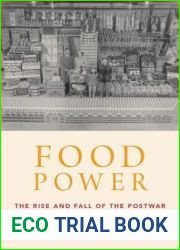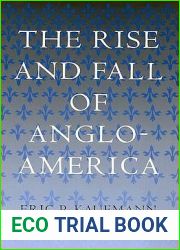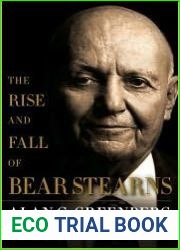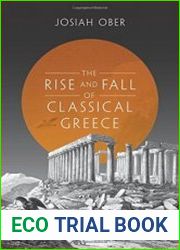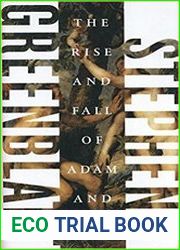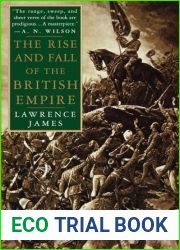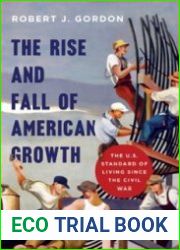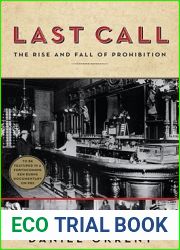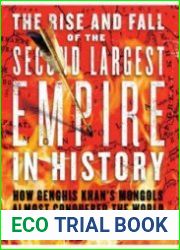
BOOKS - Food Power: The Rise and Fall of the Postwar American Food System

Food Power: The Rise and Fall of the Postwar American Food System
Author: Bryan L McDonald
Year: December 1, 2016
Format: PDF
File size: PDF 1.7 MB
Language: English

Year: December 1, 2016
Format: PDF
File size: PDF 1.7 MB
Language: English

The book "Food Power: The Rise and Fall of the Postwar American Food System" by Bryan McDonald offers a comprehensive exploration of the evolution of the American food system after World War II, delving into how food was utilized as a tool for national security and national interests during the Cold War era. The author challenges the widely-held assumption that the postwar food system was solely focused on industrialization, processed foods, and increased caloric intake, instead highlighting the various visions of food power and their impact on American modernization and stability. The book begins by examining the postwar years, during which Americans struggled to understand how an abundance of food could be leveraged to advance US goals and values. Policymakers and experts worked towards building a new food system centered around American agricultural surpluses, which stabilized prices and ensured food availability, thereby averting a global food crisis for nearly three decades. However, this system eventually came to an end in the early 1970s, marking the beginning of a more precarious period in global food relations. Throughout the book, McDonald skillfully weaves together history, agriculture, foreign policy, and politics to paint a vivid picture of how food politics have evolved over time.
Книга Брайана Макдональда «Food Power: The Rise and Fall of the Postwar American Food System» предлагает всестороннее исследование эволюции американской продовольственной системы после Второй мировой войны, углубляющееся в то, как продовольствие использовалось в качестве инструмента национальной безопасности и национальных интересов в эпоху холодной войны. Автор оспаривает широко распространенное предположение о том, что послевоенная продовольственная система была ориентирована исключительно на индустриализацию, обработанные пищевые продукты и увеличение потребления калорий, вместо этого подчеркивая различные видения продовольственной мощи и их влияние на американскую модернизацию и стабильность. Книга начинается с изучения послевоенных лет, в течение которых американцы изо всех сил пытались понять, как обилие продовольствия может быть использовано для продвижения целей и ценностей США. Политики и эксперты работали над созданием новой продовольственной системы, сосредоточенной вокруг американского сельскохозяйственного профицита, которая стабилизировала цены и обеспечила доступность продовольствия, тем самым предотвратив глобальный продовольственный кризис в течение почти трех десятилетий. Однако эта система в конце концов подошла к концу в начале 1970-х годов, ознаменовав начало более шаткого периода в глобальных продовольственных отношениях. На протяжении всей книги Макдональд умело сплетает воедино историю, сельское хозяйство, внешнюю политику и политику, чтобы нарисовать яркую картину того, как с течением времени развивалась продовольственная политика.
livre de Brian Macdonald, « Food Power : The Rise and Fall of the Postwar American Food System », propose une étude complète de l'évolution du système alimentaire américain après la Seconde Guerre mondiale, en approfondissant la façon dont l'alimentation a été utilisée comme instrument de sécurité nationale et d'intérêt national à l'époque de la guerre froide. L'auteur conteste l'hypothèse largement répandue selon laquelle le système alimentaire d'après-guerre était exclusivement axé sur l'industrialisation, les aliments transformés et l'augmentation de la consommation de calories, soulignant plutôt les différentes visions de la puissance alimentaire et leur impact sur la modernisation et la stabilité américaines. livre commence par une étude des années d'après-guerre, au cours desquelles les Américains ont lutté pour comprendre comment l'abondance de nourriture peut être utilisée pour promouvoir les objectifs et les valeurs des États-Unis. s décideurs et les experts ont travaillé à la mise en place d'un nouveau système alimentaire centré sur l'excédent agricole américain, qui a stabilisé les prix et assuré la disponibilité des denrées alimentaires, évitant ainsi une crise alimentaire mondiale pendant près de trois décennies. Cependant, ce système a finalement pris fin au début des années 1970, marquant le début d'une période plus précaire dans les relations alimentaires mondiales. Tout au long du livre, Macdonald a su rassembler l'histoire, l'agriculture, la politique étrangère et la politique pour brosser un tableau brillant de l'évolution de la politique alimentaire au fil du temps.
libro de Brian McDonald «Food Power: The Rise and Fall of the Postwar American Food System» ofrece un estudio exhaustivo de la evolución del sistema alimentario estadounidense después de la Segunda Guerra Mundial, profundizando en la forma en que los alimentos fueron utilizados como instrumento de seguridad nacional e interés nacional en la era de la Guerra Fría. autor cuestiona la sugerencia generalizada de que el sistema alimentario de la posguerra se orientó exclusivamente hacia la industrialización, los alimentos procesados y el aumento de la ingesta calórica, destacando en cambio las diferentes visiones del poder alimentario y su impacto en la modernización y estabilidad estadounidense. libro comienza con un estudio de los de la posguerra, durante los cuales los estadounidenses lucharon por entender cómo la abundancia de alimentos podría ser utilizada para promover los objetivos y valores de Estados Unidos. Políticos y expertos han trabajado para crear un nuevo sistema alimentario centrado en torno al superávit agrícola estadounidense que ha estabilizado los precios y garantizado la disponibilidad de alimentos, evitando así una crisis alimentaria mundial durante casi tres décadas. n embargo, este sistema finalmente llegó a su fin a principios de la década de 1970, marcando el comienzo de un período más precario en las relaciones alimentarias globales. A lo largo del libro, McDonald teje hábilmente historia, agricultura, política exterior y política para dibujar una imagen vívida de cómo ha evolucionado la política alimentaria a lo largo del tiempo.
O livro «Food Power: The Rise and Fall of the Postwar American Food System», de Brian McDonald, oferece um estudo completo sobre a evolução do sistema alimentar americano após a Segunda Guerra Mundial, aprofundando a forma como os alimentos foram usados como ferramenta de segurança nacional e de interesse nacional durante a Guerra Fria. O autor contesta a suposição generalizada de que o sistema alimentar do pós-guerra estava apenas focado na industrialização, alimentos processados e aumento do consumo de calorias, em vez disso enfatizando as diferentes visões de poder alimentar e seus efeitos na modernização e estabilidade dos EUA. O livro começa com o estudo dos anos pós-guerra, durante os quais os americanos se esforçaram para entender como a abundância de alimentos pode ser usada para promover os objetivos e valores dos EUA. Políticos e especialistas trabalharam para criar um novo sistema alimentar concentrado em torno do superávit agrícola americano, que estabilizou os preços e garantiu a disponibilidade de alimentos, evitando assim uma crise alimentar global em quase três décadas. No entanto, este sistema finalmente chegou ao fim no início dos anos 1970, marcando o início de um período mais precário nas relações alimentares globais. Ao longo do livro, McDonald tem falado de forma inteligente sobre história, agricultura, política externa e política para desenhar uma imagem brilhante de como a política alimentar evoluiu ao longo do tempo.
Il libro di Brian McDonald «Food Power: The Rise and Fall of the Postwar American Food System» offre un'indagine completa sull'evoluzione del sistema alimentare americano dopo la Seconda Guerra Mondiale, che approfondisce il modo in cui il cibo è stato utilizzato come strumento di sicurezza nazionale e di interesse nazionale durante la guerra fredda. L'autore contesta l'ipotesi diffusa che il sistema alimentare del dopoguerra fosse focalizzato esclusivamente sull'industrializzazione, sugli alimenti lavorati e sull'aumento del consumo calorico, sottolineando invece le diverse visioni del potere alimentare e il loro impatto sulla modernizzazione e la stabilità degli Stati Uniti. Il libro inizia studiando gli anni del dopoguerra, durante i quali gli americani hanno cercato di capire come l'abbondanza di cibo può essere utilizzata per promuovere gli obiettivi e i valori degli Stati Uniti. Politici ed esperti hanno lavorato per creare un nuovo sistema alimentare incentrato sul surplus agricolo americano, che stabilizzasse i prezzi e assicurasse la disponibilità alimentare, evitando così una crisi alimentare globale per quasi tre decenni. Ma alla fine il sistema finì all'inizio degli annì 70, segnando l'inizio di un periodo più precario nelle relazioni alimentari globali. Per tutto il libro, McDonald è stato capace di mettere insieme storia, agricoltura, politica estera e politica per disegnare un quadro vivace di come la politica alimentare si è evoluta nel tempo.
Brian McDonalds Buch „Food Power: The Rise and Fall of the Postwar American Food System“ bietet eine umfassende Untersuchung der Entwicklung des amerikanischen bensmittelsystems nach dem Zweiten Weltkrieg und vertieft die Art und Weise, wie bensmittel während des Kalten Krieges als Instrument der nationalen cherheit und des nationalen Interesses eingesetzt wurden. Der Autor bestreitet die weit verbreitete Annahme, dass das Ernährungssystem der Nachkriegszeit ausschließlich auf Industrialisierung, verarbeitete bensmittel und erhöhte Kalorienzufuhr ausgerichtet war, und betont stattdessen die verschiedenen Visionen der Nahrungsmittelmacht und ihre Auswirkungen auf die amerikanische Modernisierung und Stabilität. Das Buch beginnt mit einer Untersuchung der Nachkriegsjahre, in denen die Amerikaner darum kämpften zu verstehen, wie die Fülle an Nahrungsmitteln genutzt werden könnte, um die Ziele und Werte der USA zu fördern. Politiker und Experten haben daran gearbeitet, ein neues Ernährungssystem zu schaffen, das sich auf den amerikanischen Agrarüberschuss konzentriert, der die Preise stabilisiert und die Verfügbarkeit von Nahrungsmitteln sichergestellt hat, wodurch eine globale Nahrungsmittelkrise für fast drei Jahrzehnte verhindert wurde. Dieses System endete jedoch schließlich in den frühen 1970er Jahren und markierte den Beginn einer prekäreren Periode in den globalen Ernährungsbeziehungen. Im Laufe des Buches verwebt MacDonald geschickt Geschichte, Landwirtschaft, Außenpolitik und Politik, um ein lebendiges Bild davon zu zeichnen, wie sich die Ernährungspolitik im Laufe der Zeit entwickelt hat.
Brian McDonald's Food Power: Wzrost i upadek powojennego amerykańskiego systemu żywnościowego oferuje kompleksowe badanie ewolucji amerykańskiego systemu żywnościowego po II wojnie światowej, zagłębiając się w sposób, w jaki żywność była wykorzystywana jako instrument bezpieczeństwa narodowego i interesów narodowych w okresie zimnej wojny. Autor kwestionuje powszechne założenie, że powojenny system żywnościowy koncentrował się wyłącznie na uprzemysłowieniu, przetworzonej żywności i zwiększonym spożyciu kalorii, zamiast podkreślając różne wizje siły żywnościowej i ich wpływ na amerykańską modernizację i stabilność. Książka rozpoczyna się od zbadania powojennych lat, w których Amerykanie walczyli o zrozumienie, w jaki sposób obfitość żywności może być wykorzystana do rozwoju amerykańskich celów i wartości. Politycy i eksperci pracowali nad stworzeniem nowego systemu żywnościowego skupionego wokół amerykańskiej nadwyżki rolnej, która ustabilizowała ceny i zapewniła dostępność żywności, tym samym zapobiegając globalnemu kryzysowi żywnościowemu przez prawie trzy dekady. Jednakże system ten ostatecznie dobiegł końca na początku lat siedemdziesiątych XX wieku, co oznaczało początek bardziej wstrząsającego okresu światowych stosunków żywnościowych. W całej książce, MacDonald fachowo tkanie razem historia, rolnictwo, polityka zagraniczna i polityka, aby namalować żywy obraz jak polityka żywnościowa ewoluowała w czasie.
Brian McDonald's Food Power: The Rise and Fall of the Post American Food System מציעה מחקר מקיף על התפתחות מערכת המזון האמריקאית לאחר מלחמת העולם השנייה, תוך התעמקות באופן שבו שימש המזון כמכשיר לביטחון לאומי ואינטרסים לאומיים בתקופת המלחמה הקרה. המחבר חולק על ההנחה הרווחת שמערכת המזון שלאחר המלחמה התמקדה אך ורק בתיעוש, תזונה מעובדת וצריכת קלוריות מוגברת, ובמקום זאת מדגישה חזיונות שונים של כוח המזון והשפעתם על המודרניזציה והיציבות האמריקאית. הספר מתחיל בבחינת השנים שלאחר המלחמה שבהן התקשו האמריקאים להבין כיצד ניתן להשתמש בשפע המזון לקידום מטרות וערכים של ארצות הברית. חוקרי מדיניות ומומחים עבדו כדי ליצור מערכת מזון חדשה שמרכזה בעודף החקלאי האמריקאי שייצב את המחירים והבטיח את זמינות המזון, ובכך למנוע משבר מזון עולמי במשך כשלושה עשורים. עם זאת, מערכת זו הגיעה בסופו של דבר לסיומה בתחילת שנות ה-70 של המאה ה-20, וסימנה את תחילתה של תקופה רעועה יותר ביחסי המזון העולמיים. לאורך כל הספר שוזר מקדונלד במומחיות היסטוריה, חקלאות, מדיניות חוץ ופוליטיקה כדי לצייר תמונה חיה של איך מדיניות המזון התפתחה עם הזמן.''
Brian McDonald's'ın Gıda Gücü: Savaş Sonrası Amerikan Gıda steminin Yükselişi ve Düşüşü, İkinci Dünya Savaşı'ndan sonra Amerikan gıda sisteminin evrimi hakkında kapsamlı bir çalışma sunarak, Soğuk Savaş döneminde gıdaların ulusal güvenlik ve ulusal çıkarların bir aracı olarak nasıl kullanıldığını araştırıyor. Yazar, savaş sonrası gıda sisteminin yalnızca sanayileşmeye, işlenmiş gıdalara ve artan kalori alımına odaklandığı, bunun yerine farklı gıda gücü vizyonlarını ve bunların Amerikan modernizasyonu ve istikrarı üzerindeki etkilerini vurguladığı yaygın varsayımını tartışmaktadır. Kitap, Amerikalıların yiyecek bolluğunun ABD hedeflerini ve değerlerini ilerletmek için nasıl kullanılabileceğini anlamaya çalıştığı savaş sonrası yılları inceleyerek başlıyor. Politika yapıcılar ve uzmanlar, fiyatları stabilize eden ve gıda mevcudiyetini sağlayan ve böylece yaklaşık otuz yıldır küresel bir gıda krizini önleyen Amerikan tarımsal fazlası etrafında merkezlenmiş yeni bir gıda sistemi oluşturmak için çalıştılar. Bununla birlikte, bu sistem 1970'lerin başında sona erdi ve küresel gıda ilişkilerinde daha sallantılı bir dönemin başlangıcına işaret etti. Kitap boyunca MacDonald, gıda politikasının zaman içinde nasıl geliştiğine dair canlı bir resim çizmek için tarih, tarım, dış politika ve siyaseti ustalıkla bir araya getiriyor.
Brian McDonald's Food Power: The Rise and Fall of the Postwar American Food System يقدم دراسة شاملة عن تطور النظام الغذائي الأمريكي بعد الحرب العالمية الثانية، ويتعمق في كيفية استخدام الغذاء كأداة للأمن القومي والمصالح الوطنية خلال الحرب الباردة. حقبة. يعارض المؤلف الافتراض الواسع الانتشار بأن نظام الغذاء بعد الحرب كان يركز فقط على التصنيع والأطعمة المصنعة وزيادة تناول السعرات الحرارية، وبدلاً من ذلك يؤكد على رؤى مختلفة للقوة الغذائية وتأثيرها على التحديث والاستقرار الأمريكي. يبدأ الكتاب بفحص سنوات ما بعد الحرب التي كافح خلالها الأمريكيون لفهم كيف يمكن استخدام وفرة الطعام لتعزيز أهداف وقيم الولايات المتحدة. عمل صانعو السياسات والخبراء على إنشاء نظام غذائي جديد يتمحور حول الفائض الزراعي الأمريكي الذي أدى إلى استقرار الأسعار وضمان توافر الغذاء، وبالتالي تجنب أزمة الغذاء العالمية لما يقرب من ثلاثة عقود. ومع ذلك، انتهى هذا النظام في نهاية المطاف في أوائل السبعينيات، مما يمثل بداية فترة أكثر اهتزازًا في العلاقات الغذائية العالمية. في جميع أنحاء الكتاب، ينسج ماكدونالد بخبرة التاريخ والزراعة والسياسة الخارجية والسياسة لرسم صورة حية لكيفية تطور السياسة الغذائية بمرور الوقت.
布萊恩·麥克唐納(Brian McDonald)的著作《食品力量:戰後美國食品系統的興衰》對第二次世界大戰後美國食品體系的發展進行了全面研究,深入探討了食品在冷戰時期如何被用作國家安全和國家利益的工具。作者對戰後糧食系統僅專註於工業化,加工食品和增加卡路裏攝入量的廣泛假設提出異議,而是強調了糧食實力的不同願景及其對美國現代化和穩定的影響。這本書首先研究了戰後代,在此期間,美國人努力了解如何利用豐富的食物來促進美國的目標和價值觀。政策制定者和專家致力於建立以美國農業盈余為中心的新糧食體系,該體系穩定了價格並確保了糧食供應,從而避免了近三十來的全球糧食危機。但是,該系統最終在1970代初結束,標誌著全球糧食關系更加不穩定的時期的開始。在整個書中,麥當勞巧妙地將歷史,農業,外交政策和政策匯集在一起,以生動地描繪糧食政策隨著時間的推移的發展。







